The Institute recently suspended 16 second-year undergraduate students for three years and 6 others for one year on charges of involvement in an incident of ragging. The IIT Kanpur Academic Senate took the decision upon recommendation from the Student Senate Advisory Committee (SSAC). Deputy Director, Dr. Manindra Agrawal was quoted by Times of India, saying that because the charges against the students were extremely serious, the decision had to be taken to send a strong message to students to say no to ragging and maintain decorum.
The committee found them guilty based on the statements of the students of freshman year and confessions of the accused. It must be noted that not all the 22 students were directly involved in the ragging. A few of them were, by their own admission, absent from the venue where the said incident took place. They were charged with being guilty of dereliction of duty for failing to prevent the incident in spite of holding ‘Positions of Responsibility’. (These students were members of Hall Executive Committee)
Regardless of the unfair nature of the judgement, the decision was a vicious one, given the culture of the institute students are groomed in. At IIT Kanpur, freshman undergraduates are ragged, typically by sophomores, during their first year. The ritual is so well-ingrained into the culture of the institute that various acts performed have specific monikers attached to them. The acts can range anywhere from being made to introduce oneself in chaste Hindi to stripping and putting one’s clothes inside out (in one’s own privacy but within a stipulated time). Although the practice is horrifying enough as it is, it is only fair to mention that at no point during the course of ragging is a student touched physically by a senior (several reports in some national dailies have suggested that the students were thrashed, which is utterly incorrect). The incident in question was one of the many such incidents that have been happening in the institute for a long time and are most defintiely, not an aberration.
While there can be no rationalisation for such behaviour, it must be said that the decision to suspend students for such prolonged periods is unreasonable, one that tries to correct decades of institutional wrong with one monstrous judgement. Most students, including the ones being suspended, have been ragged with equal brutality in their freshman year. They have learned, to their astonishment, that the administration is all too complacent to care. Most freshmen come to IIT Kanpur detesting such practices as much as any rational being would. But by the end of the first year, they, too, are a part of this malicious spiral, all thanks to the enabling environment that sustains it. Such is the normalisation of ragging IIT Kanpur that a substantial proportion of students sincerely believes that it is beneficial, even necessary for the development of freshmen.
The only brief a freshman gets from the Counselling Service with respect to ragging is that when a particular interaction (an innocuous-sounding euphemism for ragging in campus parlance) gets uncomfortable, it should be made known to the senior driving the interaction. The word uncomfortable works quite like a codeword and in most cases, the ragging is stopped immediately. But for someone facing ten odd seniors in a position of presumed power, what is comfortable and what is not lies in the realm of the occult. Just the fact that institute’s 7-day orientation program for freshers (which includes sessions on ‘road safety’ and ‘community welfare’) makes no mention of ragging or its redress goes a long way in explaining how little the institute cares to curb it.
During 2016, a hostel warden, on receiving a written complaint for ragging, responded by telling the freshmen in the hostel, during its General Body Meeting (the only time of the year the warden actually meets the students), that all such complaints must be sent to the Hall Executive Committee (HEC) and not to him. The HEC is the student body which was accused of ragging in the complaint. This incident is to say nothing of countless other complaints that have yielded no or meek responses. One is left wondering how the institute suddenly starts suspending students on charges of ragging when it was forwarding similar complaints to the accused until last year.
The freshers being being made to enact a pole dance (with one student becoming the pole and another the dancer) on stage in the auditorium during the orientation programme is a peculiar case. The Academic Senate almost punished over a hundred student volunteers of the Counselling Service for allowing it to happen in their presence. The Counselling Service is headed by a professor and includes three institute appointed counsellors. The fact that an institute body allowed this activity to happen for all these years and then found it fair to punish the students epitomizes the legitimacy accorded to ragging in the institute.
It won’t be a stretch to say that everyone, from the security staff to the Counselling Service, were aware of the all too common incidents of ragging that happened inside hostels (many of the professors are recent graduates of IIT Kanpur too). As such, they tacitly approved of the practices all through the decades. Yet the Senate had no qualms about suspending 22 students for actions they were told, during their one year of stay in the college, were completely normal.
The efforts of the institute to stop ragging on the campus have been shallow and skin-deep, restricted to the ritualistic displaying of anti-ragging posters. The historic supreme court judgement of May 8, 2009 ordered the implementation of recommendations made by Raghavan Committee to ‘see that the ugly scar of ragging was obliterated from the face of educational institutions’. Over the years, IIT Kanpur has brazenly flouted many of the guidelines including, but not limited to, the ones paraphrased below.
1. Joint sensitization programme and counseling of both ‘freshers’ and seniors by a Professional counselor
2. Joint orientation programme of ‘freshers’ and seniors to be addressed by the principal/Head of the institution, and the anti-ragging committee
3. Each batch of freshers should be divided into small groups and each such group shall be assigned to a member of the staff. Such staff member should interact individually with, each member of the group on a daily basis for ascertaining the problems/difficulties if any faced by the fresher in the institution and extending necessary help.
4. Freshers shall be lodged in a separate hostel block, wherever possible.
5. Brochures or booklet/leaflet distributed to each student at the beginning of each academic session for obtaining undertaking not to indulge or abet ragging, shall contain the blueprint of prevention and methods of redress.
Had the institute adhered to these guidelines, generations of students would have been spared both the emotional trauma of being ragged and the agony of becoming perpetrators themselves. Perhaps the institute can start following basic guidelines to stop ragging.
The institute must realise that the cure to the menace lies in taking reformatory action against the students involved and sensitising its students regarding the issue, and not in handing down barbaric punishments to ones who are but victims of this sordid culture. It has, for long, overlooked its responsibility in eradicating ragging from the campus, exemplified by nothing better than its failure to adhere to Supreme Court guidelines. The institute cannot hold its students to the same standards of Supreme Court regulations that it has failed to abide by. By choosing to give exemplary punishment to an unfortunate bunch of students for decades of institutional wrong, IIT Kanpur is more than just mislaying its moral compass.
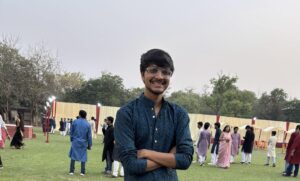

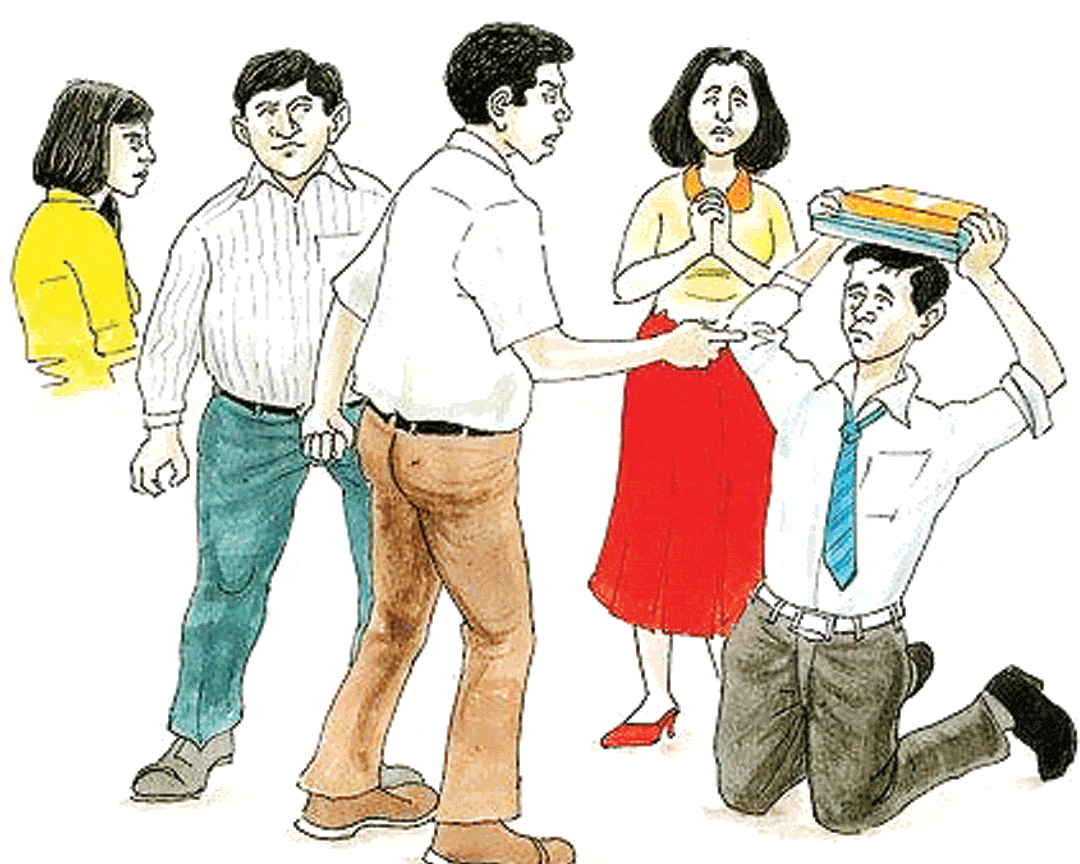
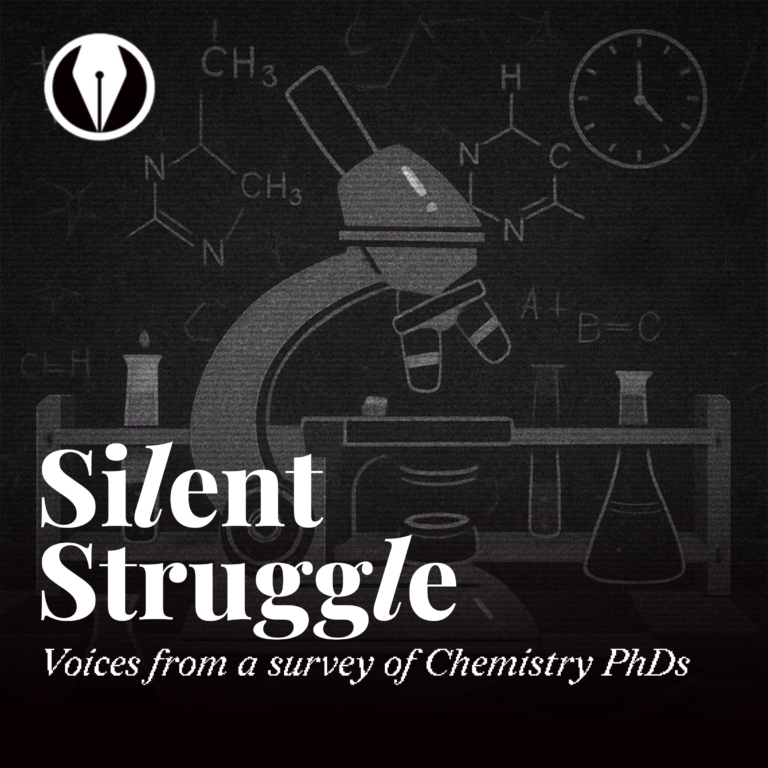
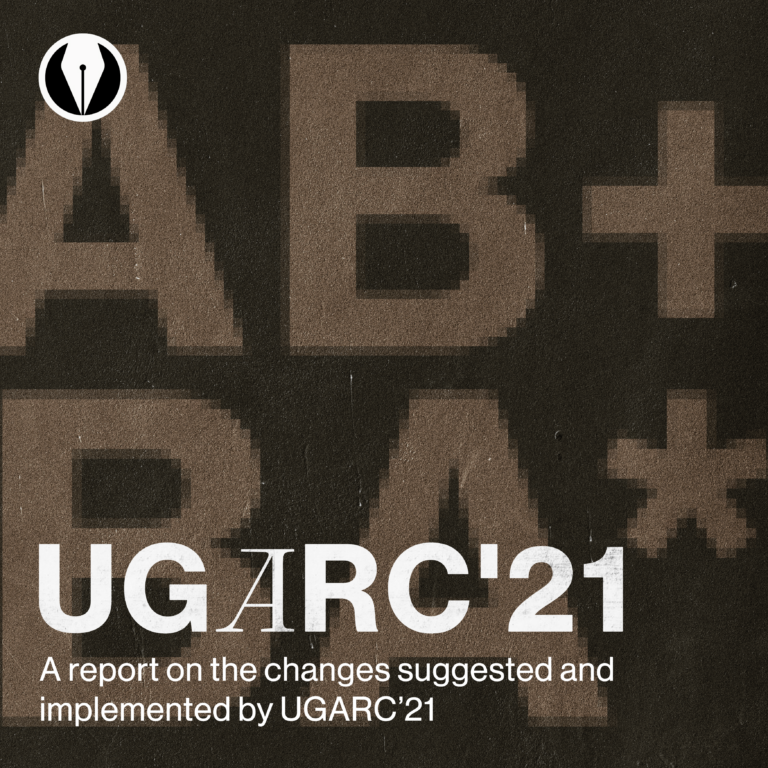
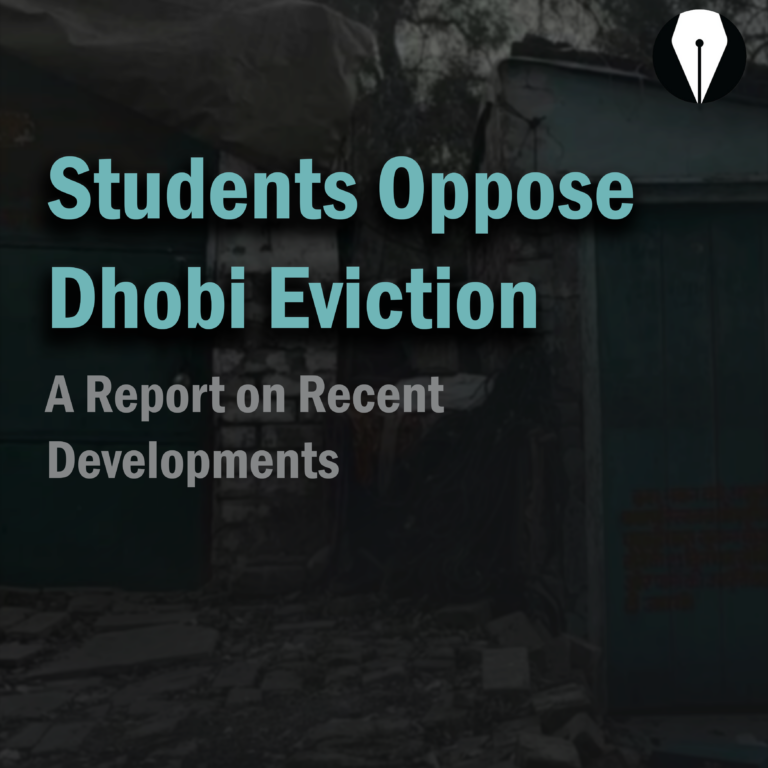
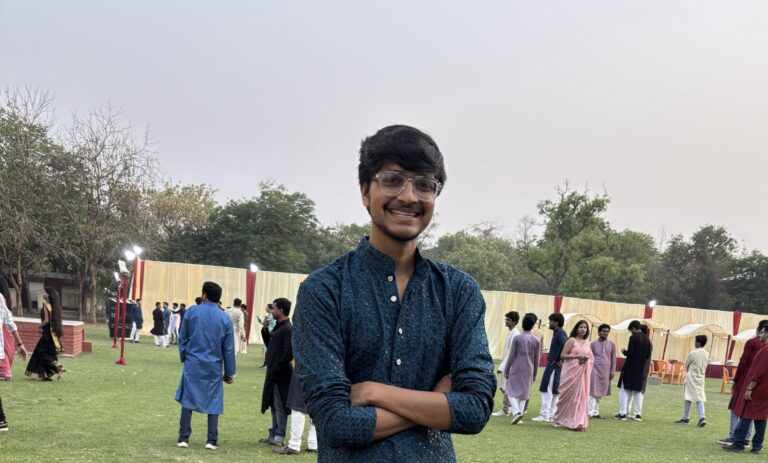

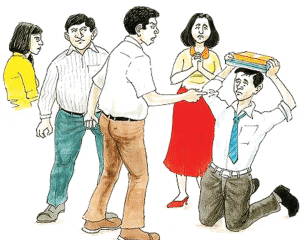
I have to disagree with the points in this article. IITK might be (and I agree with this) lax about the ragging tradition and “culture”, but that should not let the perpetrators off the hook. Tradition and cycle of victim becoming perpetrator could have led to the incident, but that is no excuse. We do not let those who commit domestic violence go free simply because wife-beating has been normalised through their upbringing and social sanction. IITK has to change its attitude towards fresher-senior interactions, but this has to be in addition to and not a substitute for punishment.
Sexual harassment is immoral and illegal. If someone indulges in it because they have been at the receiving end before or because it is tradition or they expect no repercussions, the fact remains that what they are doing is both wrong and criminal. If I use my position of power to get someone to strip and they complain, under any other situation, I will be – and I should be – in prison. IITK has only suspended these students. Though the institute must not be allowed to wash its hands off the responsibility to change its attitude towards ragging, the punishment itself is not disproportionate or unreasonable.
Charges of sexual abuse are figment of imagination of a disgruntled useless professor. Dheeraj Sanghi needs to provide proofs of his knowledge about sexual offences in IITK. He then is guilty of conspiring with offender by not reporting it to police. If he says he has no specific knowledge of the same and is simply saying on the basis of hearsay then he is guilty of criminal defamation of the institute and the criminal defamation of each of you personally too who associate yourselves proudly with IITK. Same is true for you as it is for Dheeaj Sanghi, if you propagate his propaganda.
Charges of sexual abuse are figment of imagination of a perennially disgruntled professor who blogs most of his time rather than innovating in technology. Dheeraj Sanghi needs to provide proofs of his knowledge about sexual offences in IITK. He then is guilty of conspiring with offender by not reporting it to police. If he says he has no specific knowledge of the same and is simply saying on the basis of hearsay then he is guilty of criminal defamation of the institute and the criminal defamation of each of you personally too who associate yourselves proudly with IITK. Same is true for you as it is for Dheeaj Sanghi, if you propagate his propaganda.
Hey raziman why aren’t you on quora any more
Congratulations Vox Populi ! Your article on 15.10.2017 is a very well balanced one. But alas! It is not going to cut any ice with these few thick skinned politicians-turned-academicians (or vice versa?) squabbling for positions or for a selfish moment of ill-gotten fame. These so called academicians have taken IITK to its nadir from the glorious peak it rightly deserved. Scandals not researches rolls out on the streets of IITK. You should accept by now that your pleas, your reasons, your appeals for sanity cannot penetrate into their swollen egoistic heads. Most of them who were howling inside senate for your blood also hate you because they themselves or their progeny could not clear JEE which you did. It is because of this envy based vengeance they look at you as step sons at the same time when you mistook them as your guardians or parents.
What will then act on them to bring them into their senses?
You are young leaders of India or may be a leading future global citizen. My advice to you is that however furious you may be but never take law into your hands. You must, as a duty, take to THEIR door steps the LAW OF THE LAND!
Now carefully peruse the message ahead…
The same AICTE notification dated July 1, 2009 which they have invoked in SSAC recommendations seeking to take the strictest punishment also tell them the following:
Item no 7: “Action to be taken against the Principal or the Head of the Institution/Faculty Members/Non-Teaching staff of technical institution, Universities including Deemed to be Universities imparting technical education. 1. The Head of the Institution along with other administrative authorities should take adequate measures for prevention of ragging. Any lapse on the part of these authorities shall make them liable for criminal action for negligence of duty. The technical Institution, University including Deemed to be University imparting technical education should incorporate a clause in their letter of appointment that the Director, Faculty and other administrative Heads should ensure all possible steps for prevention of ragging in the premises of the educational institutions, and that they are liable for action, in case of non-compliance. 2. The Principal or Head of the Institution/Department shall obtain an affidavit from every employee of the Institution including teaching/non-teaching staff, contract labor employed in the premises either for running canteen or as watch and ward staff or for cleaning or maintenance of the building, lawns etc. that he/she would report promptly any case of ragging which comes to his/her notice. A provision shall be made in the service rules for issuing certificates of appreciation to such members of the staff who report ragging which will form part of their service records. 3. Departmental enquiries shall be initiated, in addition to penal consequences against such heads of the Institution/Faculty members/non-teaching staff who display an apathetic or insensitive attitude towards complaints of ragging and would not take timely steps in the prevention of ragging and punishing those who rag. 4. The Principal or the Head of the Institution/Faculty Members/Non-Teaching staff, if found negligent in taking necessary measures for ensuring safety of students and preventing the ragging would be declared unfit for holding any post in any technical institution, University including Deemed to be University imparting technical education.”
The notification above is not an option for IITK to follow, it is mandatory as it is flowing verbatim from the historic supreme court judgment of May 8, 2009 which ordered the implementation of following recommendations made by Raghavan Committee. See ANNEXURE at the end.
It is abundantly clear from this notification and excerpts of the judgment that IITK authorities have showed criminal negligence of their duty for which they need to be punished severely. They have also indulged in criminal defamation of this great institute IITK for their narrow political gains.
My suggestion is that you must, as a responsible citizen, take this to a logical conclusion, don’t be cowed down by the fear of reprisal from these tormentors. The plight of current victims must not be ignored too in the hope that such arbitrariness will not victimize you tomorrow. Good news is that criminal elements are few in number though high in vocal power. The vast majority of faculty is still highly respected though silent spectator. As Napoléon Bonaparte quoted “The world suffers a lot. Not because of the violence of bad people. But because of the silence of the good people.”.
Save IITK, save your country and save humanity from these criminally political elements in IITK. Prepare a petition and send it to The President of India, The Prime Minister, all Supreme Court Judges individually, Chief Justice of Allahabad High court, Director General of Police Uttar Pradesh and the Union HRD Minister. This petition will demand effective banning of ragging in IITK. Whenever Parliament enacts a stringent law to reform the scour of society (which ragging is) there are people who will use this as a tool to injure others but will do nothing to curb the menace for which the law was enacted.
Your petition will earnestly plead that these politically criminal elements should not make use of a stringent law to settle their personal scores at the same time when they are themselves for years together have been guilty of criminal negligence of duty as mandated in Supreme Court judgments. These provisions have been acknowledged by them themselves by mentioning the AICTE notification in senate minutes (AP-326/21.09.201/para 1 of recommendations). Not just negligence they are actually guilty of abetment of crime as well as criminal conspiracy to shield the real accused and implicate the innocent ones.
Charges you should make out in detail against IITK authorities are:
1. Professor Dheeraj Sanghi needs to explain what personal actions he has taken as he was supposed to under 5.14, 5.16, 5.18, 5.20, 5.27, 5.29 & 5.30. If he has not taken any actions or he cannot provide evidence of same why a case of criminal negligence, abetment and criminal conspiracy should not be filed against him.
2. He also needs to provide proofs of his knowledge about sexual offences in IITK. He is guilty of conspiring with offender by not reporting it to police. If he says he has no specific knowledge of the same and is simply saying on the basis of hearsay then he is guilty of criminal defamation of the institute and the criminal defamation of each of you personally too who associate yourselves proudly with IITK
3. Director IITK, DOSA, Professor Maninder Agrawal and all Faculty SSAC committee members are also guilty of these charges. Student SSAC members must be exempted since they being final year students are under undue fear of reprisal from vicious political elements within SSAC. These members must also be asked whether they don’t understand the well-established legal principle of proportionality of punishment vis a vis the nature of crime. How can they award the most stringent punishment to a set of 22 students. Have they recently witnessed 22 ragging induced deaths which all others have missed or is it they are covering up for skeletons in their cupboards? They also need to be questioned why they have blatantly ignored the procedures under para 9 of SSAC Procedure and Guidelines which details the procedure of Conduct of SSAC meetings. Is it a criminal conspiracy too ?
Make this a movement, start a page, an online campaign, also send it to all media groups live & print. History will not give you another chance to vindicate you from silent witnessing of the crime being committed on your fellow innocent college mates. I repeat : “The world suffers a lot. Not because of the violence of bad people. But because of the silence of the good people.”.
All the best!
ANNEXURE: EXCERPTS OF THE JUDGMENT
“IN THE SUPREME COURT OF INDIA
CIVIL APPELLATE JURISDICTION
CIVIL APPEAL NO. 887 OF 2009
University of Kerala …Appellant
Versus
Council, Principals’ Colleges, Kerala and Ors. …Respondents
J U D G M E N T
Dr. ARIJIT PASAYAT, J.
1. Directions have been given from time to time to see that the ugly scar
of ragging is obliterated from the face of educational institutions. Mr. Gopal
Subramaniam, learned amicus curiae, Mr. P.P. Rao, Mr. Altaf Ahmed and
others appearing in the matters have given suggestions which we have
considered. Keeping in mind the recent incidents of ragging which have
surfaced, and which have been dealt with by this Court, it becomes
necessary that the following recommendations made by the Raghavan
Committee be implemented immediately, namely:
(i) Recommendation No. 5.14: “We also recommend that every
institution should engage or seek the assistance of professional
counselors at the time of admissions to counsel `freshers’ in
order to prepare them for the life ahead, particularly for
adjusting to the life in hostels…”;
(ii) Recommendation No. 5.16: “We recommend that on the
arrival of senior students after the first week or after the second
week as the case may be, further orientation programmes must
be scheduled as follows (i) joint sensitization programme and
counseling of both ‘freshers’ and senior by a Professional
counselor; (ii) joint orientation programme of ‘freshers’ and
seniors to be addressed by the principal/Head of the institution,
and the anti -ragging committee ; (iii) organization on a large
scale of cultural, sports and other activities to provide a
platform for the ‘freshers’ and seniors to interact in the presence
of faculty members ; (iv) in the hostel, the warden should
address all students; may request two junior colleagues from the
college faculty to assist the warden by becoming resident tutors
2
for a temporary duration; and , the UGC and other funding
bodies should provide financial grants for meeting the
expenditure on resident tutors (v) it is strongly recommended
that as far as possible faculty members should dine with the
hostel residents in their respective hostels to instill a feeling of
confidence among the fresh residents.”;
(iii) Recommendation No.5.18: “We recommend that every
institution must have an Anti-Ragging Committee and an Anti –
Ragging Squad. It is essential to have a diverse mix of
membership in terms of levels as well as gender in both the
Anti – Ragging Squad as well as the Anti – Ragging Committee.
The Anti – Ragging Committee at the level of the institution
should consist of the representatives of civil and police
administration, local media, Non Government Organizations
involved in youth activities, representatives of faculty members,
representatives of parents, representatives of students belonging
to the freshers’ category as well as seniors, non – teaching staff
and should be headed by the Head of the Institution. The Anti –
Ragging Squad, in contrast, should be a body with vigil,
3
oversight and patrolling functions and should appropriately by a
smaller body which should be nominated by the Head of the
Institution with such representation as considered necessary to
keep it mobile, alert and active at all time. The Squad may be
called upon to make surprise raids on hostels and other hot
sports and should be empowered to inspect places of potential
ragging. . The Squad should work under the overall guidance of
Anti- Ragging Committee. The Squad should not have any
outside representation and should only consist of members
belonging to the various sections of the campus community.”
(iv) Recommendation No. 5.28: “At the level of the District, we
recommend a District level Anti – Ragging Committee, which
should consist of the Heads of Higher Education Institutions as
members. It should be headed by the District Collector / Deputy
Commissioner / District Magistrate and should also have the
Superintendent of Police / SSP of the District as member. The
Additional District Magistrate should be a member – secretary
of the Committee, which should also have representation of the
local media and district level Non Government Organizations
4
actively associated in youth development programmes, as well
as representations of all student organizations. The District
level Committee should hold preparatory meetings during the
summer vacation meetings to take stock of the state of
preparedness of each institution and their compliance with the
policies and directions or guidelines of the appropriate bodies,
the university/State/ Central authorities; and this Court’s
guidelines in regard to curbing the menace of ragging. We have
already emphasized on the need for publicity campaigns,
summer months may be appropriate to launch such campaigns.
Some of the role expectations from the District level
Committees have already been mentioned in the preceding
paragraphs dealing with activities at the level of Schools as well
as higher education institutions and therefore are not being
repeated.”
(v) Recommendation No. 5.29: “We have thought through the
suggestion that the District level Committee, should function as
some sort of an appellate forum to the action taken by the
institution level Anti – Ragging Committee. We feel that this is
5
neither necessary nor desirable. It is not necessary in the
context of the recommendation that we propose to make in
respect of, the scheme of penalty later in this Chapter. It is not
desirable from the point of view that such a mechanism lends
an extra – campus dimension to the tackling of intra-campus
disciplinary matter. All matters of discipline within teaching
institutions, in our opinion, must be resolved within the campus
– except those impinging on law and order or breach of peace or
public tranquility, all of which should be dealt with under the
penal laws of the land; fortifying of which is being suggested
by us later on.”
(vi) Recommendation No. 5.30: “At the level of the University,
we recommend that there should be a Monitoring Cell on
Ragging, which should coordinate with the affiliated colleges
and institutions under its domain. The Cell should call for
reports from the Heads of institutions in regard to the activities
of the Anti-Ragging Committee, Anti – Ragging Squads,
Monitoring Cells at the level of the institution, the compliance
with instructions on conducting orientation programmes,
6
counseling sessions, the incidents of ragging, the problems
faced by wardens or other officials. It should also keep itself
abreast of the decisions of the District level Anti – Ragging
Committee. This Monitoring Cell should also review the
efforts made by institutions o publicize anti – ragging measures,
soliciting of undertaking from parents and students each year to
abstain from ragging activities or willingness to be penalized
for violations; and should function as the prime mover for
initiating action on the part of the appropriate authorities of the
university for amending the Statutes or Ordinances or Bye –
laws to facilitate the implementation of anti-ragging measures
at the level of the institution.”
…
(viii) Recommendation No. 5.22:. “We recommend that in the,
light of the increasing number of private commercially
managed, lodges or hostels outside campuses, such hostels and
management must be registered with the local police authorities
and permission to start such hostels or register them must
8
necessarily be recommended by the Heads of educational
institutions. It should be mandatory for both local police, local
administration as well the institutional authorities to ensure
vigil on incidents that may come within the definition of
ragging. Managements of such private hostels should be
responsible for non-reporting of cases of ragging in such
premises. Local authorities as well as the institutional
authorities should be responsible for action in the event of
ragging in such premises, just as they would be for incidents
within campuses. The Committee also recommends that besides
registering private hostels as stated above, the towns or cities
where educational institutions are located should be
apportioned as sectors among faculty members, as is being
done by some institutions, so that they could maintain vigil and
report any incidents of ragging outside campuses and en route
while ‘freshers’ commute.”
(ix) Recommendation No. 5.27: “Wardens must be accessible at
all hours and therefore it is important that they, be available on
telephone and other modes of communication – therefore, we
9
recommend that wardens must be issued mobile phones by the
institutions and the details of their telephone number must be
widely publicized. Similarly, the telephone numbers of the
other important functionaries – Heads of institutions, faculty
members, members of the anti-ragging committees, district and
sub-divisional authorities and state authorities where relevant,
should also be widely disseminated for the needy to get in touch
or seek help in emergencies. The Committee recommends that
brochures or booklet/leaflet distributed to each student at the
beginning of each academic session for obtaining undertaking
not to indulge or abet ragging, shall contain the blueprint of
prevention and methods of redress.”
The educational institutions shall ensure that each hostel
should have a full-time warden who resides within the hostel, or
at the very least, in the close vicinity thereof. State of Himachal
Pradesh has submitted that the creation of a separate cadre for
warden would not be beneficial for this purpose. But it is
desirable that institutions should provide necessary incentives
for the post of full-time warden, so as to attract suitable
10
candidates. It has been pointed out that UGC, in its Draft
Regulations on Curbing the Menace of Ragging; has also
provided accordingly.
…
11
2. Learned amicus curiae has submitted that the Ministry of Human.
Resource Development, Government of India, in consultation with UGC,
MCI, AICTE and other similar regulatory bodies is in the process of setting
up a central crisis-hotline and anti-ragging database in the manner suggested
by Dr. Rajendra Kachroo to the Raghavan Committee and the UGC. The
task of monitoring the database be given to a nongovernmental agency, to be
immediately nominated by the Union of India to build confidence in the
public and also to provide information of non compliance to the regulatory
bodies and to the Raghavan Committee. The database shall be created out of
affidavits affirmed by each student and his/her parents/guardians, which
affidavits shall be stored electronically, and shall contain the details of each
student. The database shall also function as a record of ragging complaints
received, and the status of the action taken thereon;
3. The Draft Regulations on Curbing the Menace of Ragging, formulated
by the UGC, should be implemented with the urgency it deserves and to be
adopted by .all other regulatory bodies, such as AICTE, MCI, DCI, NCI etc.;
4. The recent incident involving the death of Aman Kachroo clearly
indicates that the formulation of guidelines and regulations is not sufficient.
Such regulations shall have to be enforced strictly, and penal consequences
12
for the heads of the institutions/administration of the institution who do not
take timely steps in the prevention of ragging and punishing those who rag.
In addition to penal consequences, departmental enquiries be initiated
against such heads institutions / members of the administration / faculty
members / non-teaching staff, who display an apathetic or insensitive
attitude towards complaints of ragging;
5. Not only the students, but also the faculty who must be sensitized
towards the ills of ragging, and the prevention thereof. Non-teaching staff,
which includes administrative staff, contract employees, security guards etc.,
have also to be regularly sensitized towards the evils and consequences of
ragging;
6. The Principal or Head of the Institution/Department shall obtain an
undertaking from every employee of the institution including teaching and
non-teaching members of staff, contract labour employed in the premises
either for running canteen or as watch and ward staff or for cleaning or
maintenance of the buildings/lawns etc. that he/she would report promptly
any case of ragging which comes to his/her notice. A provision shall be
made in the service rules for issuing certificates of appreciation to such
13
members of the staff who report ragging which will form port of their
service record;
7. It is seen, that college canteens and hostel messes are also places
where ragging often takes place. The employers/employees of the
canteens/mess shall be given necessary instructions to keep strict vigil and to
report the incidents of ragging to the college authorities if any;
8. Each batch of freshers should be divided into small groups and each
such group shall be assigned to a member of the staff. Such staff member
should interact individually with, each member of the group on a daily basis
for ascertaining the problems/difficulties if any faced by the fresher in the
institution and extending necessary help. By building up rapport with each
member of the group teachers or other members of the staff would be able to
infuse confidence in the freshers and make them feel at home so as to enable
them to report incidents of ragging or bullying. Each group in-charge shall
maintain a diary of his/her interaction with the freshers under his/her charge;
9. In the case of freshers admitted to a hostel it shall be the responsibility
of the teacher in charge of the group to coordinate with the warden of the
hostel and to make surprise visits to the rooms in the hostel where the
members of the group are lodged;
14
10. Freshers shall be lodged in a separate hostel block, wherever possible,
and where such facilities are not available, the college/institution shall
ensure that seniors’ access to freshers’ accommodation is strictly monitored
by wardens, security guards and college staff;
11. A ragging takes place mostly in the hostels after the classes are over
in the college. A round the clock vigil against ragging in the hostel premises
shall be provided;
….
….
22. Compliance reports shall be filed within four months. List after four
months.
………………………………….J.
(Dr. ARIJIT PASAYAT)
………………………………….J.
(ASOK KUMAR GANGULY)
New Delhi,
May 08, 2009”
Charges of sexual abuse are figment of imagination of a disgruntled useless professor. Dheeraj Sanghi needs to provide proofs of his knowledge about sexual offences in IITK. He then is guilty of conspiring with offender by not reporting it to police. If he says he has no specific knowledge of the same and is simply saying on the basis of hearsay then he is guilty of criminal defamation of the institute and the criminal defamation of each of you personally too who associate yourselves proudly with IITK. Same charges are true against too you as these are for Dheeaj Sanghi, if you propagate his propaganda.
Charges of sexual abuse are figment of imagination of a perennially disgruntled professor who blogs most of his time rather than innovating in technology. Dheeraj Sanghi needs to provide proofs of his knowledge about sexual offences in IITK. He then is guilty of conspiring with offender by not reporting it to police. If he says he has no specific knowledge of the same and is simply saying on the basis of hearsay then he is guilty of criminal defamation of the institute and the criminal defamation of each of you personally too who associate yourselves proudly with IITK. Same is true for you as it is for Dheeaj Sanghi, if you propagate his propaganda willy-nilly.
Law is for everyone powerful people cant escape it
I slightly disagree with the meaning this article seems to convey indirectly. I agree that the authorities have been lax in the past, but merely this point of argument doesn’t justify the reasoning or implied meaning that these 22 students have been wronged. Probably, I will agree that the quantum of punishment in this case is too severe. In all probability this decision seems to be the result of significant pressure build up on administration and the committee because of the media hype this incident had created, and the concerned committee members had no choice but to take this decision. Anyways, an action has to be taken some time or the other, and there is always a first to set a precedence.
Various acts of ragging detailed in this article clearly reflect changing time, and I can definitely tell you that not all such acts were part of the ragging process existed earlier, at least not when I joined the institute as a fresher way back in 2000.
However I , agree with the overall system failure and lack of willpower to address serious incidents are areas which need to be looked at very seriously.
The exact details of this incidents have not been shared on public platform (and should not be shared), and everyone has very limited knowledge through social media only. But still this is my view that the punishment handed over here is very severe, and the administration would again reconsider the same.
It might be harsh on the guys who were on vigilance to be penalized this severly. However i am so disappointed by the way the writer has sort of justified ragging as a tradition,highlighting that the students are nit physically touched, is physical touch the only downside of ragging??
I found this comment to make more sense than the original article!
Compliment IIITK administration for the tough call. These shameful practices have to end. It should be made clear to the students that ragging is an offence and all cases will be referred to Police to be dealt as per the law of the land. Enough of this nonsense.
So your point is that since some got away with it last year, everyone should always get away with it?
22 students are being punished for IITK’s own fault? How is any of what they did IITK’s fault? Don’t know about IITK, but the 5 points you mentioned here are facilities available at most (even much lower grade) engg colleges of the country. I find it hard to believe that IITK has not implenented any of them. In any case, the rationalization of ragging as something that is “good” for the freshmen is what engg students do – not the colleges. And so does your article. I absolutely hate it when those vile “seniors” with such small minds get to play the victim card.
This article is exactly the kind of garbage that perpetuates the disgusting culture that you like call “an institutional wrong”!
Love this <3
I think it’s extremely unfair to give such harsh punishment to those amongst the 22 who were not directly involved, but for ‘dereliction of duty’. By that logic, the warden of the hostel, the DoSA and the heads of the Counselling Service are also culpable. Is any action being taken against them? This decision smacks of heavy handedness and inconsistency. As this article rightly suggests, the whole issue of ragging is being portrayed as entirely the fault of those 22 students and not the whole campus community.
This article in short – ragging is bad, very bad, but it’s the fault of the institute that it’s still around.
Those 22 people, they’re just victims. They only did what they thought was normal.
This was sexual assault. People are sent to jail for this. These students got suspended. And you think it’s too harsh.
Many of the points made in the article are valid points and there are innumerable cases, where in similar situations, the institution or the people in authority did not act or acted in a manner that directly of indirectly encouraged the perpetrators. But this argument can not be used to reduce the punishment of the perpetrators of ragging, as is being done here. Let me say, this is good beginning and we hope that IITK, being a premier institute, would continue from now on to treat each and every incident of ragging with equal seriousness and in a similat fair and just manner.